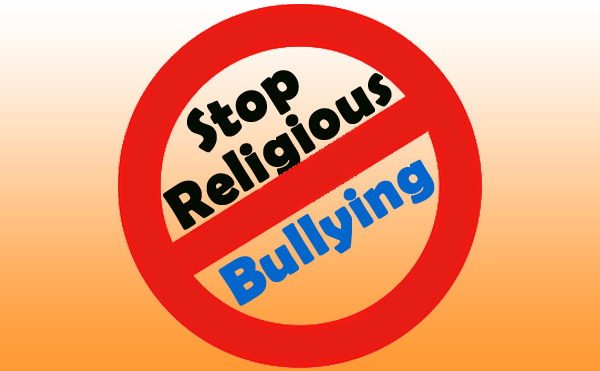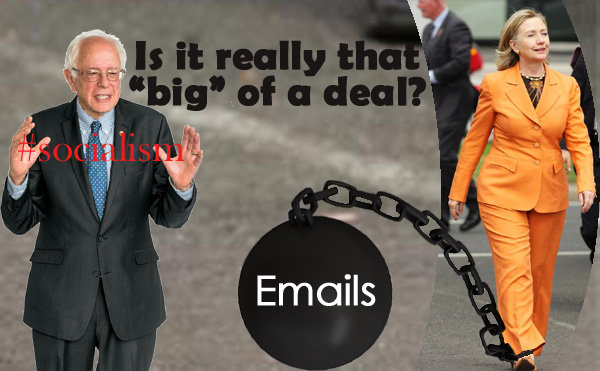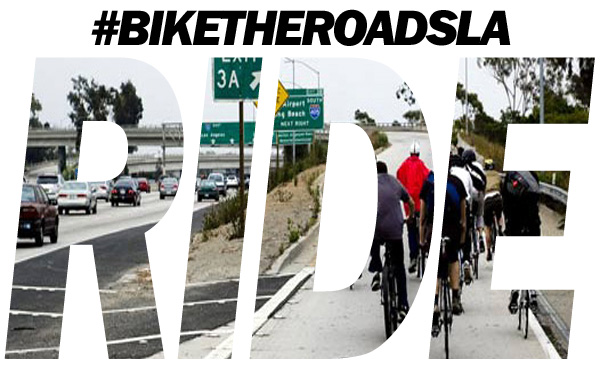Category Archive: Free Lawyer Advice
Do Lawyers Work on Contingency in Los Angeles ?
August 27, 2015
Many plaintiff attorneys take on cases on a contingency basis. What this means is that the attorney will not get paid a fee unless the client wins the case either by settlement or verdict. A typical case on this basis is a car accident. Many injured people do not have the financial resources to litigate a case against the responsible party. They do not have the financial power to go to doctors, retain other experts and pay filing fees. Attorneys assess the merits of a car accident and may decide to represent the injured party on a contingency. The attorney (if the claim goes into litigation) will front the costs of the litigation (filing fees, service of process fees, expert costs, etc). When the case resolves, the client will be responsible for the fees to the attorney and to reimburse the attorney for the costs that had been fronted by the attorney. Depending upon the complexity of the case, this could run into thousands of dollars.
Doctors in personal injury cases also take cases on a lien basis. What this means is that the doctor will treat the patient and wait for payment of his/her fees until the case resolves. This is of crucial importance if the client does not have independent means to pay for their medical treatment, or do not have health insurance. Another advantage of the use of medical liens for personal injury cases is that attorneys are sometimes able to negotiate down medical costs after settlement or verdict.
In cases where the medical expenses approach and/or are equal to or greater than the settlement or jury award, an attorney has the option of negotiating with the medical providers to lower the costs. This is how it works. For example, let us say that a Plaintiff was injured in a car accident where she was sideswiped. The Plaintiff has had to go to the hospital on a couple of occasions and has had to see a specialist that performed surgery on her. Therefore, she had extensive medical bills which ended up costing her around $30,000. Her attorney, in order to ensure that she gets some compensation, is able to negotiate a settlement with the Defendant who will have to pay $25,000. If the doctors treating Plaintiff were not working on a lien system, then the Plaintiff and the lawyer would get no compensation and the Plaintiff would have to pay another $5000 in medical bills. In a lien-based system, the Plaintiff’s attorney can negotiate with the doctors to get them to reduce their medical bills based on the size of the award, in this case $25,000. The Plaintiff’s lawyer should be able to negotiate so that the Plaintiff does not have to pay her medical bills out of pocket and will still get some compensation for her injury.
Outside of the personal injury field, attorneys rarely take cases on a contingency basis, yet almost all attorneys that practice personal injury law will take on contingency cases.
Are you looking for a lawyer to work on contingency basis for your case? Call or email LA Jewish Lawyer Now and will gladly spend a free hour of consultation with you to see how we can help you. 855-977-1212 or email below……
Should Religious Doctrine Override the Law?
August 25, 2015
A recent California case provides a real dichotomy in logic vs doctrine. A mother and her husband agree that after the birth of their second child, they did not want any more children. The mother is to give birth in a Catholic Hospital and the Hospital will not perform a tubal ligation which would prevent future pregnancies because it violates church doctrine. If this is allowed to stand, the mother will have to drive 150 miles to another hospital to have this procedure. Is this right? Which of the competing interests is number one here? Is it the patient and her husband’s rights? Is it the church because it is their hospital? Is it the insurance company who is paying or may pay the medical procedure? Should patients/families have the right to get health care without having to worry about religion at the health care facility?
On a related note, a court clerk in Kentucky will not perform same sex marriages because this would offend her religious beliefs and would cause a “searing” injury to her beliefs. How can the simple ministerial task of issuing a license have this type of effect on a person? If it does have this effect, can’t the clerk just pass this task onto someone in the office who would not suffer from this “injury”? Can clerks dictate policy when the Supreme Court has already sanctioned same sex marriages? Will the city, county or state be sued if they condone this action by one of their employees? Should the employee suffer personal liability and free the government from responsibility? Is not the exercise of religion a personal one that should be conducted personally and should not interfere with the exercise of others legal rights?
What say you?
The Curtain Opens on Trump Policies: Do We Want This?
August 17, 2015
The Republican front runner Donald Trump has revealed polices on two issues which are “hot button” potential problems for a future commander in chief. The first is that he wants to send US troops back to Iraq and “take over” the oil in that country. This is simply amazing! What does he mean “take over”? Does he mean that the United States assumes ownership of the oil at the expense of the Iraqi people? Does he mean that the US is unaccountable to anyone on this issue? Does he mean that we need to send US troops back to the region to accomplish this goal? Does he mean that he wants the US to basically colonize Iraq for the benefit of the US? Is this a precursor of having US troops fight ISIS on the ground not only in Iraq, but in the entire Middle East region?
On Immigration, Trump wants Mexico to pay for a wall to safeguard US borders. He now has somewhat modified his position by stating that he would raise visa fees and criminalize and prosecute those who overstay their visas. Is this a policy that the country wants? Where is the money coming from to pay for this? Visa fees will alone not pay for this policy? Do we commit US troops at the border? Do we subcontract this to private companies? Will immigrants be denied due process in US courts when these policies are being enforced? Will the “increased fees” become de facto turning away Mexican people from coming into the US?
Trump also admitted that he gets ideas for policy from watching the various television shows on the issues of the day. Do we want a president getting policy ideas from the media? Should issues come from the president and be evaluated by the people and the media? What is the quality of advisors that Trump has?
The American people deserve the specifics of what a Trump candidacy is going to look like. The key question is: do we like what we now see?
What say you?
What Do Angelenos Want: Bike Lanes or Traffic Lanes?
August 13, 2015
The Los Angeles City Council has changed the Southern California lifestyle and experience by changing streets to create more bike lanes. It has been argued that this would make the roads safer for bicyclists and pedestrians, increase bus lanes and attempt to get us out of our cars. The key question is: Do we want to do this?
As Will Rogers once said about buying real estate, “there is only so much there.” This is the same a rationale. Our existing streets cannot (for the most part) be modified to carry more vehicular traffic. They can be modified to carry less by the use of these lanes. However, do motorists want to have increased traffic in decreased lanes?
The City has a “legacy of shame” by not acting more aggressively to decrease traffic fatalities involving children and senior citizens. Once again, do we want to give up our cars? Do we want to worry about this when the city goal to accomplish this is over a 20 year period? The goal of “Mobility Plan 2035” is to decrease speed of traffic. Supporters cite that only 5% of pedestrians/cyclists in accidents with cars going 20 miles per hour die, while 80% of people involved in the same accidents with cars going 40 miles per hour die. Do we have the problem raised in urban planning of NIMBY (not in my back yard)? Do we want to slow ourselves down or lose parking spaces? The City council voted 12-2 to proceed with this plan. Is this a good use of city resources?
Experts say that reducing all types of crashes is possible if the city is willing to radically change streets by adding medians, widening sidewalks and putting in dedicated bus and bike lanes. The question is do motorists want this? Do businesses want this? Government claims that by enacting this measure and forcing people to use alternate means (bike, public transportation) the number miles driven will decrease. Once again, do motorists want this?
What say you?”
Do We Need More Black & Latino Prosecutors?
August 7, 2015
With the increasing number of criminal defendants being black and Latino, a question has arisen: would there being more black and/or Latino prosecutors change how the criminal justice system is viewed by people? Prosecutors are charged with seeking “justice”, not just to win as most other attorneys are. If a black and/or Latino prosecutor was representing the people in a criminal case, would this alone change the perception of the criminal justice system? It would appear no. A prosecutor is merely a representative of the people. It would seem that a change in the composition of the race of the prosecutor would do little if anything to change the perception in the black and Latino communities. Yet, we find that prosecutions are at times racially motivated and that prosecutors are far from “color blind” when it comes to deciding whether and to what extent to prosecute and/or sentence offenders.
Prosecutors in the United States Department of Justice are in an awkward position now. It has come to light recently that prosecutors in that office withheld exculpatory evidence in a criminal case. The prosecution has been under a duty to do this since 1963. Therefore, their duty to do so hardly snuck up on the prosecutors. It has been said that when the prosecutors act in such a manner it contributes to the harmful notion that the criminal justice system is a game, and that victory rather than justice is a prosecutor’s goal”. The people making this argument are not hardened criminal defense lawyers. They are 20 former Justice Department officials. They feel that the role of prosecutor’s is to not simply to always win convictions. That role requires a prosecutor in order to assure a fair trial, to make broad disclosure to a criminal defendant of the information the government possesses.
The case above demonstrates the lie of those that say that a prosecutor is merely a representative of the people. Therefore, it is time to consider how we can ensure that district attorneys and assistant district attorneys can ensure that more of their members are minorities. In doing so, we not only ensure that the prosecutors look at cases from a different perspective, but also that those who are in the criminal justice system view the prosecutor’s office in different ways.
Does the public want fairness or convictions? Societal attitudes toward the criminal justice system are changing. The key question is which way?
What say you?
Trump needs a Huge Bump . . . Out of the Election Process
July 20, 2015
It is amazing but “the Donald” is outdoing himself on a daily basis. Now that he has angered the Latino community (a segment that the Republican Party desperately needs if it has a serious chance to win the 2016 Presidential election), he now blasts veterans. This is a community that are traditionally pro-Republican. To even think, much less say that John McCain is not a war hero because he was captured is lunacy!! McCain, the son of a Navy Admiral who was shot down over Hanoi, kept as a prisoner of war for five years and tortured during this time, is not a hero?? Seriously?!!! McCain had the chance to get released early when the North Vietnamese realized who his father was. Instead, McCain turned down this chance because others had been prisoners longer than he and he did not feel right getting out earlier than they. If this is not a hero, what is?
The movie line from “A Few Good Men” rings true when dealing with Trump. When Jack Nicholson says to Tom Cruise: “Son, have you ever served in a forward position in a combat zone, ever put your life in another man’s hands, had that man put his life in your hands? People follow orders or people die.” Apply this to Mr. Trump. He did not serve in combat, did not have anyone trying to kill him, did not follow orders and fly over hostile territory. McCain did. So, Donald, what about you? Well, the Donald had a deferment (for a foot issue where today he cannot even remember which foot it was). On the other hand, McCain was doing his duty to his country.
By Trump’s definition, a hero must have been killed in action? Why then do we award medals to those who survived in combat for gallantry? Death does not make a hero, actions do!! What action has Trump done?? Little to nothing!
Trump says that veterans are not being taken care of. This may be true to some extent. Changes are being made at the VA. Should this have been done sooner? Of course. Can care be better? Of course. However, it is easy to rant and complain like Trump, but where is his solution to the problem? To say, I could do better does not really cut it. If Trump is really serious about being the leader of the Free World, show us what you have. Talk is easy and cheap. What is your plan, your vision for taking care of the problems?
Is Trump like Macbeth, “full of sound and fury signifying nothing”? What say you?
Nuclear Deal or Terrorist Steal?
July 17, 2015
Now that an agreement with Iran has come to pass on nuclear technology, the inevitable round of political posturing will now begin. The Republicans and some Democrats will complain that the agreement did not go far enough, that it is no stringent enough, etc. The key question that must be asked is: will the implementation of this agreement make the region safer? If the answer is yes, go ahead with it. If the answer is maybe, go ahead with it. If the answer if no, then do not go with the agreement. The last question is one that will be answered by the passage of time. Therefore, our government is on the precipice of history. Do we trust our former ally (under the Shah) and now our enemy (the current regime) that they will abide by the agreement? What will Iran do with the billions of dollars they stand to gain by this agreement? Will they continue to fund terrorism? Will they use the monies for peaceful purposes? What if Iran refuses to allow for inspection of their nuclear facilities? Will sanctions be reimposed?
Has the President elevated his wishful thinking into his political philosophy? Israel has stated that they will not be bound by the terms of this agreement (if it passes Congress) and may attack Iran anyway. Is this a prudent choice for them and for the United States? As the old saying goes, keep your friends close and your enemies closer! What will the Republican-controlled Congress do with this agreement? Will they ratify it? Will they make the president exercise his veto on any Congressional action? Will Congress potentially attempt to override a presidential veto? Will the Republicans make this a political issue for the 2016 election? If so, how much better could they have done? Any negotiation is not perfect for either side. There are always issues left unresolved or issues not brought up. This may be done by design or by how the talks progressed. The deal as it is presently established is for 10 years. The issues are not set in stone and can be revisited
To say the least, we have a very fluid situation on this issue. There are many ways for this situation to evolve. How it does is left open to interpretation.
What say you?
Most Dangerous Intersections For Pedestrians in Los Angeles
July 14, 2015
Despite recent efforts to make L.A. a safer place to walk, Los Angeles still has some really deadly intersections.
Some of them are disproportionately more hazardous to cross than others, according to a new analysis of traffic collisions by the L.A. Times. The report shows that nearly 25% of all traffic crashes involving a pedestrian occur at less than 1% of the city’s intersections. The map reveals 579 of the most problematic intersections across the city—and more than 800 across the county. Many of the most dangerous pedestrian crossings are located around Hollywood and downtown Los Angeles.
To create the report and map, the L.A. Times used crash data from 2002 to 2013 gathered by the California Highway Patrol. To identify the most dangerous intersections, they considered three factors: the overall number of pedestrian collisions, the percentage of collisions where pedestrians were involved, and the percentage that were fatal.
The map shows clusters of highly problematic areas—highlighted by a grey circle—where there are the highest concentrations of dangerous intersections. In these clusters, you’ll see particularly high rates of pedestrian collisions in places that have a lot of pedestrians. For example: in downtown L.A., 659 people were hit and 11 killed at 48 intersections, and Hollywood there were 369 people hit and 8 deaths. The two most dangerous intersections are Slauson and Western avenues in South L.A., where 41 people were hit by cars over the 12 year period, and where Hollywood Blvd. intersects Highland Ave. where 38 pedestrians were hit by cars, and one was killed during the time span.
While it may seem somewhat predictable to say that more pedestrians are hit more often at busier intersections—which many of those on the map are—the L.A. Times report suggests that even within those busy areas certain factors make some intersections more dangerous than others. For instance, some intersections allow for cars to turn while pedestrians have the right of way, instead of requiring drivers to wait on a red light, while the width and traffic flow of other streets allow cars to move faster through certain intersections. These and other factors can increase the risk to pedestrians over other similarly busy intersections.
The report also points out that the city has made some encouraging strides towards making L.A. a safer place to walk. By installing more high visibility crosswalks with wide, bright stripes and using traffic calming measures like broader curbs and fewer lanes to slow traffic, Los Angeles is working to reduce pedestrian collisions, but there’s clearly still a long way to go. While many of these efforts can be costly and drivers might not be excited about losing lanes to traffic calming, the resulting safety improvements are worth it to make the city safer for those walking. As Ryan Snyder, a transportation planner and UCLA professor, explains, “The common way to think about this is, we don’t want to do anything that compromises car movement. But is it more important to save yourself 10 seconds as you drive, or to save lives?”
BY DANNY JENSEN IN NEWS @ LAIST ON JUL 13










